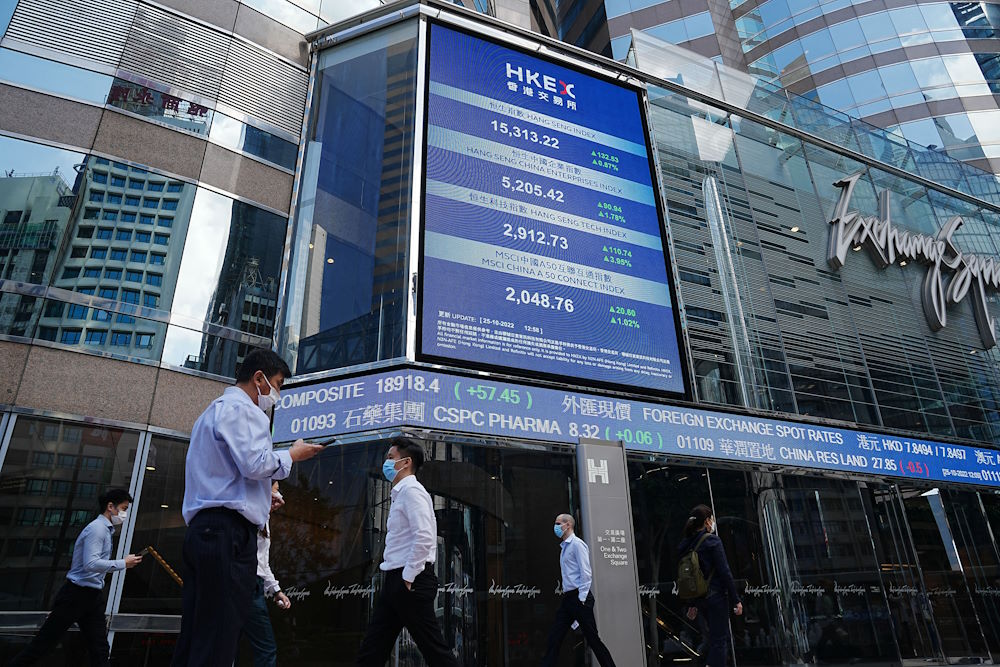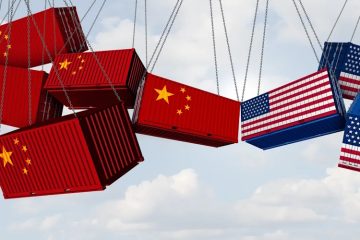Will Hong Kong see a positive outcome in the near future?

Hong Kong’s stock market was once the leading global platform for equity fundraising. In a surprising turn of events, it seems that the position has drastically changed. Despite holding the top spot in 2019, it has now fallen out of the top five in 2023, as reported by Dealogic.
The market has experienced a significant increase of 6% this week, marking its strongest performance of the year. This surge can be attributed to the recent proposed regulatory changes. Especially noteworthy are the remarks made by China’s security regulator, indicating the possibility of additional large Chinese companies being approved for listing in Hong Kong.
That would be a positive development, although it may not be sufficient to fully address the situation. A significant shift in investors’ perception of Chinese stocks as a whole is still needed for Hong Kong’s struggling banking sector to experience a lasting recovery.
Last week, Chinese securities regulators unveiled five measures aimed at bolstering Hong Kong’s financial markets. Certain measures, such as broadening the range of investment options available to mainland Chinese investors through the Stock Connect trading link with Hong Kong, could increase the amount of capital flowing in from the north. However, it is important to note that these measures may not have a significant impact on the overall market.
It is especially pleasing for the city’s struggling bankers to hear that China will provide support for additional “leading companies” to be listed in Hong Kong. It remains uncertain what specific measures Beijing will implement to achieve this goal, considering that several major Chinese companies are already listed in Hong Kong. However, the market responded positively to the news: The recent rally propelled the Hang Seng Index to its highest point of the year.
That assistance is highly necessary. The city has experienced a significant decline in initial public offerings, reaching levels that haven’t been seen in over a decade. In 2024, the total amount raised is less than $1 billion, ranking it eighth among global exchanges, as reported by Dealogic. For the entire year of 2020, the total amount was $52 billion.
In the March quarter, Hong Kong Exchanges and Clearing, the operator of the city’s stock exchange, reported a 13% decline in net profit compared to the previous year. In addition to a lack of new listings, trading volume has also been underwhelming. The stock exchange experienced a 22% decline in average daily turnover last quarter compared to the previous year.
Other recent regulatory adjustments may also provide assistance. China has increased its examination of IPOs in its domestic stock markets since last year. In recent years, Shanghai and Shenzhen have emerged as formidable rivals to Hong Kong in attracting new listings. However, an increasing number of companies might reassess Hong Kong as it becomes more challenging to conduct initial public offerings in mainland China.
However, the prevailing negative sentiment towards stocks associated with China continues to be the primary factor hindering companies from going public. According to FactSet, the Hang Seng is currently trading at 8.8 times forward earnings, which is lower than its ten-year average of 12.4 times. That fact makes Hong Kong a challenging option for companies seeking to raise capital. As an economist would analyze, Chinese e-commerce giant Alibaba has decided not to proceed with its initial plan of listing its cloud and logistics units, citing the influence of the current market environment.
Furthermore, several recent companies that successfully listed in Hong Kong have been experiencing underwhelming performance. The value of bubble tea maker Sichuan Baicha Baidao, which had the largest IPO in 2024, has already decreased by one-third since its public debut on Tuesday.
The current downturn in Chinese stocks and Hong Kong can be attributed to various factors, including a sluggish Chinese economy, escalating geopolitical tensions, and China’s strict regulations on industries such as technology and real estate.
Facilitating the listing process for important Chinese companies will be beneficial. However, making adjustments to regulatory rules alone will not be sufficient to revive Hong Kong’s markets.










